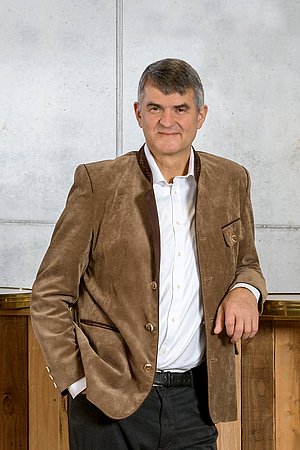Farming in times of Corona
Who would have imagined only three months ago that the agricultural sector and the farmer would one day become systemically-relevant – all over the world? Due to Corona it has been possible. However, the important approaches of regenerative farming must not take a back seat. Michael Horsch explains why.
“The discussion between ecological and conventional farming has moved to a more objective level. We notice that the legislator does not implement at all costs everything that might put an additional strain on the economy. But this does not mean that topics like climate, healthy food etc disappear. On the contrary: They have achieved a new quality and move to a level where we farmers can discuss with society in a more rational way.
Let’s take the reduction of plant protection agents as an example. Many farmers are well aware of the fact that this not only is a demand of society. The experiences from our farming activities automatically lead us there. Resistances to plant protection agents (e.g. black grass) increase constantly and increasing the application rates only improves the situation for a short time. Moreover, year by year we notice that tight rape rotations (25 % +) come back to haunt us. Rape yields do no longer increase. On the contrary. They sometimes even decrease – despite or because of the increasing use of plant protection agents!?

This results in a constant extension of the rotations (diversity) and an automatic decrease of plant protection measures. I see more and more spring crops and thus also row crops which will be sown with single grain seed drills. In this context we think about treating only the row with a herbicide and about resorting to mechanical weed control in the spacings in between. Rape which absolutely can be sown with a row spacing of 50 cm figures among these crops.
In the long run, regenerative farming (hybrid farming) will be another alternative to organic respectively conventional farming. We want to become an expert in this sector, too, and help to push “regenerative” ideas. For a lot of people regenerative farming automatically implies a new form or organic farming. But that’s not true. The regenerative aspect perfectly fits into conventional farming, too.
With a regenerative approach you try to reduce the influence of chemical fertilisation and plant protection on the biology in the soil and in the plant, even to replace it. We have to get a better understanding of the interactions between the plant respectively the root and the soil and its biology and of the role soil biota plays if you influence the environment they live in in such a way that they partly can replace the function of for example chemical fertilisation.
We have to be aware of the fact that regenerative farming will not first and foremost increase yields, but create more soil quality, natural plant health and a higher quality in terms of an increased nutrient density in our cereals. And let’s not forget that capturing carbon in the soil (formation of humus) will only be possible with this cultivation method – even if the topic climate has fallen a little bit behind Corona.
This is the reason why in the following issues of terraHORSCH we will deal with regenerative farming. Experiences about this topic have already been gathered in Germany, Austria, France and Great Britain. But we also want to include international findings. We are very happy that with Joel Williams we found an internationally recognised specialist who will write some articles for us. You will find the first one right on the next page. We are looking forward to learning which knowledge and experiences already exist with regard to regenerative farming.”